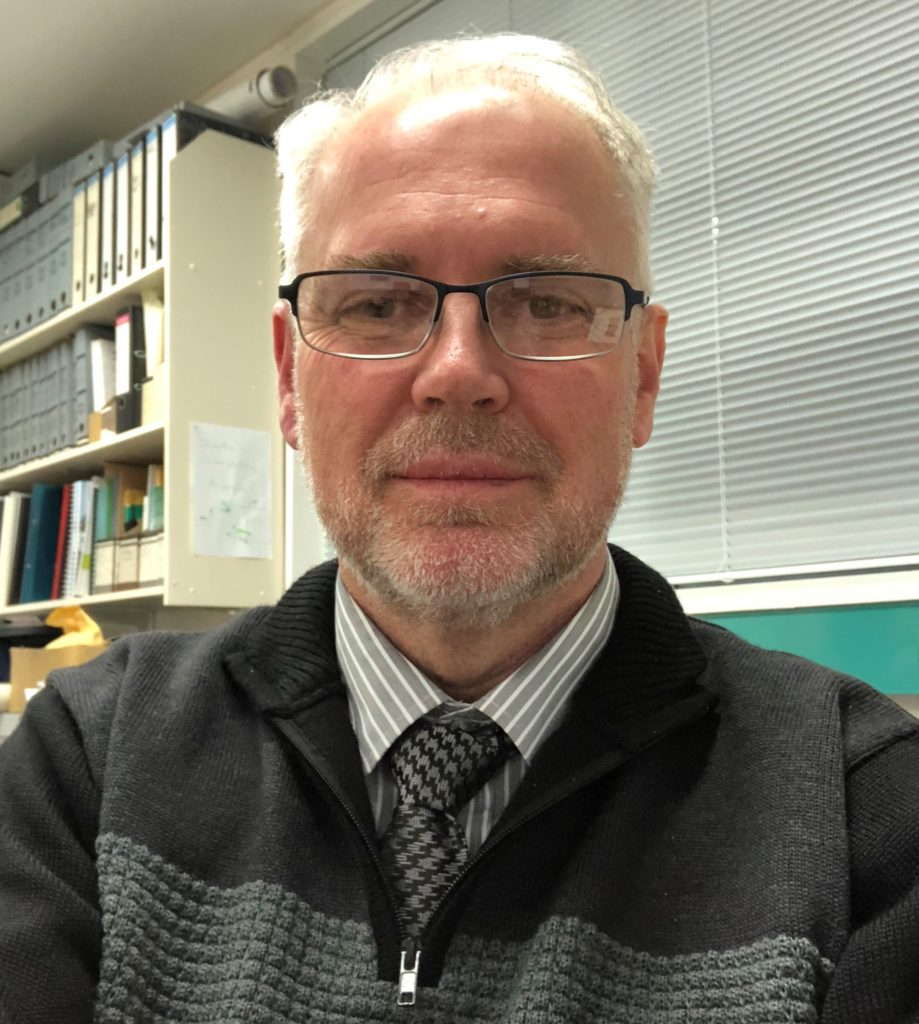 Professor Andrew Young
Professor Andrew Young
Science director, National Collections and Marine Infrastructure, CSIRO
See Professor Young’s full research profile here.
E: andrew.young@csiro.au
Research outputs linked to policy change and decision-making
As science director for CSIRO’s National Collections and Marine Infrastructure business unit, Professor Young is responsible for the operational delivery of 3 major pieces of national science infrastructure relevant to the delivery of the Resilient Landscapes Hub objectives: 1) the National Research Collections Australia that represent significant research capacity in taxonomy and systematics, 2) the National Collaborative Research Infrastructure Strategy (NCRIS)-funded Atlas of Living Australia, a key biodiversity data integrator and 3) the CSIRO Environomics Future Science Platform (FSP), a science and technology incubator developing the next-generation of environmental DNA (eDNA) platform technologies and applications. Key research personnel within these programs who will be available to engage in hub activities include Dr Linda Broadhurst, an ecological geneticist with extensive experience in conservation genetics and restoration ecology, Dr Olly Berry who leads the Environomics FSP, Dr Andrew Zerger, director of the Atlas of Living Australia and head of the Australian delegation to the Global Biodiversity Information Facility (GBIF) and Dr Andreas Zwick who leads the National Collections team focusing on development of genomic tools for rapid taxonomic analysis.
- Biomes of Australian Soil Environments (BASE). Professor Young developed and co-led the BASE national framework dataset initiative from 2013 until its evolution 2 years ago into the Australian microbiome project. This $6+ million project is a national collaboration among 23 federal, state and university partners that has used metagenomics to characterise the soil microbiome from 1,500+ sites across the Australian continent and model it in relation to soil type, vegetation and climate. The data have been used to explore patterns and drivers of microbial community structure, function and response to land use as well as understand the value of incorporating microbial manipulation into vegetation restoration programs.
- Environomics FSP. In 2016, Professor Young developed and initiated the CSIRO Environomics FSP. This initiative is developing the next generation of eDNA platform technologies for use in measuring and monitoring the diversity and condition of species and ecological communities based on the genomic analysis of environmental samples. This $20+ million program of work includes collaboration with a range of federal, state, industry and university partners. It is addressing issues ranging from quantitative analysis of fish stock structures through to measurement of pollination dynamics in the horticultural industry and the detection of invasive species. It is also developing technologies to unlock the nation’s extensive and valuable biological collections as DNA reference datasets of Australia’s biodiversity for analysis of both environmental and community DNA samples.
- Global Biodiversity Information Facility. GBIF is the largest open-access provider of global biodiversity information with over 30 member countries and active work programs across all continents. As deputy chair of the governing board, Professor Young works with the chair and executive secretary to shape the strategy, workplan and operations of GBIF, and interacts with country nodes that deliver regional outcomes. As the governing board executive representative on the science committee, he has particular responsibility for planning and delivery of GBIF science strategy and engagement. GBIF data provide framework information and science that is utilised around the planet for environmental assessments, monitoring, management planning and development of policy.
Professor Young is representing a group from the National Research Collections Australia.
Current academic employment and positions
- 2014–present: science director, National Collections and Marine Infrastructure, CSIRO
- 2002–present: honorary professor, Research School of Biology, The Australian National University.
Highest qualification
- 1993: PhD (Biology), Carleton University, Ottawa, Canada.
Major prizes, medals and honours
- 2003: Australian Academy of Sciences Fenner Medal
- 2008: Inaugural Commonwealth Scientific and Industrial Research Organisation, Newton-Turner Award.
Roles on government or regional organisation committees
- 2017–present: international scientific advisory panel, New Zealand BioHeritage Challenge
- 2017–present: strategic program board, Accelerating Science Delivery Innovation program, Science and Technology Division, Department of Environment and Science, Queensland Government
- 2012–present: board, Australian Tropical Herbarium.
Links with non-government groups or networks
- 2019–present: vice-chair, governing board of the Global Biodiversity Information Facility, Denmark
- 2018–present: chair, national Fulbright postdoctoral committee (science and engineering)
- 2018–present: member, Australian Academy of Science, ecology and evolutionary biology committee
- 2015–present: steering committee, OzMammals Genomics Initiative (Bioplatforms Australia).
My Projects
 Current project
Current project Completed project
Completed project
NESP RLH, 2021-2027NESP, 2015-2021NERP, 2012-2015TRaCK, 2005-present
 Professor Andrew Young
Professor Andrew Young